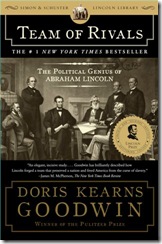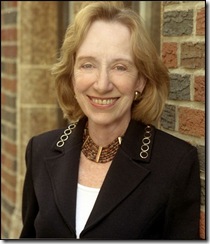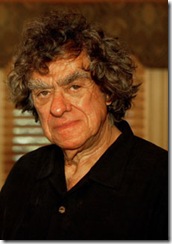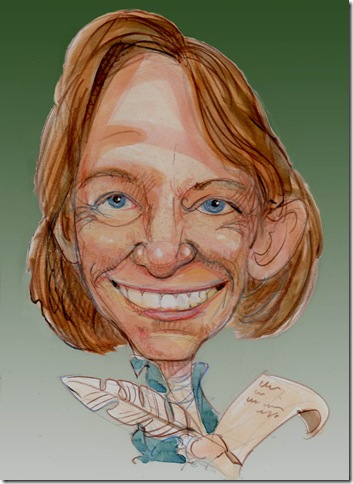By Chauncey Mabe
Doris Kearns Goodwin is a historian with a great sense of timing.
Already a Pulitzer Prize winner for No Ordinary Time, her 1995 dual biography of Franklin and Eleanor Roosevelt, Goodwin was basking in the fading glow of her 2005 Abraham Lincoln book, Team of Rivals, when she received a call from an upstart presidential candidate named Barack Obama.
“He said, ‘I’ve just read ‘Team of Rivals,’ and we have to talk,” Goodwin recalls. “Hillary was still way ahead. He was not thinking about putting his cabinet together but about the qualities Lincoln had as a person.”
Of course, Obama went on to unseat front-runner Hillary Clinton for the Democratic presidential nomination and then easily defeat Republican challenger John McCain to become the first African-American president — and “team of rivals” became a phrase closely associated with the new administration.
 “Lincoln crosses a wide swatch of the political spectrum,” Goodwin says. “George Bush looked up to Lincoln, and Sarah Palin has said ‘Team of Rivals’ is her favorite book, too. Ida Tarbell said in 1900 so many people write about Lincoln because he’s so companionable.”
“Lincoln crosses a wide swatch of the political spectrum,” Goodwin says. “George Bush looked up to Lincoln, and Sarah Palin has said ‘Team of Rivals’ is her favorite book, too. Ida Tarbell said in 1900 so many people write about Lincoln because he’s so companionable.”
Born in Brooklyn, educated at Harvard, where she earned a Ph.D. in government in 1968, Goodwin was only 23 when Lyndon Johnson offered her a job in his White House. After Johnson left office, she helped him prepare his memoirs, leading directly to her first book, Lyndon Johnson and the American Dream (1977).
Goodwin’s other books include The Fitzgeralds and the Kennedys (1987), and the baseball memoir Wait Till Next Year (1997). She’s married to Richard Goodwin, the playwright and former presidential speechwriter portrayed by actor Rob Morrow in the 1994 film, Quiz Show.
Goodwin, who now winters in Palm Beach County, will appear at the Festival of the Arts Boca –- which opens Friday — both alone and with Richard. She sat down with Chauncey Mabe recently to talk about Lincoln, Obama, baseball, and the art and craft of biography.
Mabe: Thanks in part to Obama’s appreciation of your book, the president has been compared to Lincoln. How do you think he’s fared over the first year?
Goodwin: When I comment on contemporary affairs, I like to come with a historical perspective. There is always something history can tell you. For example, JFK’s first year was considered a disaster. Obama faced many more challenges, without so many disasters, but his approval rating has inevitably slipped.
One thing you do learn after one year is the temperament of the new leader that will be there in years two, three and four. We’ve learned some positive things. He’s very steady in a crisis, admits his mistakes, he’s very articulate at explaining things. He may have learned he has to deal with Congress in a different way, really exert leadership over Congress.
Mabe: How does that compare with Lincoln’s first year?
Goodwin: With Lincoln we have 200 years of hindsight to see what an extraordinary figure he was. But after the first year no one believed that. He had lost the first battle of Bull Run, the country had split apart, the war was not going well. But the kind of person he was did win out. It takes time for any leader to grow into the role. The extent to which Obama looks up to Lincoln is a good thing. Why not have as mentor our greatest president?
Mabe: Speaking of perspective, what are your thoughts on LBJ now, more than 30 years after your first book?
Goodwin: I think as the years go by, LBJ’s place in history will grow. When he died [in 1973], the Vietnam War was still a scar on his legacy, and it will remain one, but when we look at what LBJ accomplished in domestic politics, there’s been nothing like him since. Civil rights legislation, voting rights, Medicare, beautification, the War on Poverty. What he did will be given its rightful place despite the war.
Mabe: Which is harder – writing the biography of a figure you knew, or that of someone in the distant past?
Goodwin: In some ways, the deader they are, the easier it is. In my first book, I knew LBJ so well, and he was such a vibrant figure, the problem becomes ho w to remove yourself sufficiently so you can criticize as well as applaud. On the other hand, as you go back in time there are fewer and fewer witnesses to interview. Even when writing about the Roosevelts, I found people still alive with wonderful stories.
w to remove yourself sufficiently so you can criticize as well as applaud. On the other hand, as you go back in time there are fewer and fewer witnesses to interview. Even when writing about the Roosevelts, I found people still alive with wonderful stories.
As you go back in time, you become more dependent on diaries, handwritten letters. In some ways that’s the most treasured source. I worry about how diaries and letters are not written today. What will future historians do? At least there are e-mails and blogs, which makes up for the period when people mostly talked on the phone.
Mabe: What makes your books so popular with readers?
Goodwin: History is a series of stories about people that lived in another time. When people say they hated history, they mean the memorization of dates and facts. Part of what allows you to reach a larger audience is if you can tell a story. My skill is bringing character to life. [Historian] Arthur Schlesinger has the talent to write big sweeping historical books. I could not do that. I start with characters and go outward.
Mabe: So you chose to write about Lincoln, possibly the most written-about figure in history, because of the characters surrounding him?
Goodwin: At the beginning, I was attracted to Lincoln precisely because so much had been written about him. Ida Tarbell said in 1900 so many people wrote about Lincoln because he’s so companionable. It takes me a long time to write a history, years. I could not wake up every morning, knowing I was going to spend the day with Hitler or Stalin.
After the Roosevelt book and World War II, the only thing as big was the Civil War, which was scary, as I had not studied the 19th century. I told myself I was writing to learn. Originally I thought I’d write about Abe and Mary, but Mary couldn’t carry the public side of the story in the ways Eleanor Roosevelt could. I realized he was spending more time with his Cabinet than with his wife. I saw I could use these characters to reflect back on Lincoln.
Mabe: Why have you settled on Boca as your winter home? You could live anywhere, right?
Goodwin: We’ve lived in Mizner Park since January. It’s great. It’s been a brutal winter in Boston. We went to L.A. one winter and it was wonderful, but it’s so much farther. We have grandchildren now. We’ve spent time in Naples, too. We’re huge baseball fans. When the Dodgers left Brooklyn I was so devastated I couldn’t follow baseball for a few years. Then we moved to Boston and found a team like the Dodgers, with a small park and rabid fans.
Mabe: This is your second time at the Boca Festival of the Arts. What are you going to talk about?
Goodwin: I’d like to be able to look back over the course of a long career writing biographies, telling the stories of people I’ve lived with. It takes a long time to write my books. It took longer to write the Roosevelt biography than it took to win World War II. I really do feel like I know the people I write about. 
The festival is wonderful. They have music, movies, as well as literature. I’m going to interview Richard on Saturday. He has fabulous stories about the Kennedys and LBJ. He wrote LBJ’s civil rights speech, one of the great speeches of the 20th century. He was with Bobby Kennedy when he died. My husband was also the investigator in the quiz show scandals, played by Rob Morrow in the Robert Redford film.
His achievements are extraordinary. Most recently he wrote a play about Galileo and Pope Urban [The Hinge of the World]. He’s an amazing writer. It will be fun to have a conversation. Richard went to Harvard, first in his class, president of the Law Review, clerk for Justice Frankfurter. And he never practiced law a day in his life. He found a life of public service instead.
Mabe: I understand your son volunteered for the Army after 9/11?
Goodwin: We’re proud. Yes, our youngest son [Joseph] had just graduated from Harvard and was set to go to law school, but he volunteered for the Army. He served as a platoon leader in Iraq. And then he was working for NBC when he was called up for service in Afghanistan. That became his 20s. An experience he would not otherwise have seen, coming from affluent Concord and Harvard, if he had not volunteered.
Doris Kearns Goodwin appearances
Doris Kearns Goodwin at Festival of the Arts Boca: Monday, March 8, at 7 p.m. The Art and Craft of Biography: Living with Johnson, Kennedy, Roosevelt and Lincoln. At the Schmidt Family Centre for the Arts, Mizner Park, downtown Boca Raton. Tickets: $25-50.
Doris Kearns Goodwin and Richard Goodwin: an Interview: Saturday, March 13, 4 p.m. Inside the White House with JFK, Jackie, Bobby and LBJ. Cultural Arts Center, second floor. Mizner Park, downtown Boca Raton. Tickets: $25-50.
For more information, visit the festival site at www.festivaloftheartsboca.org.
